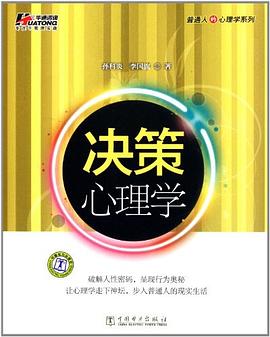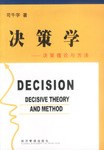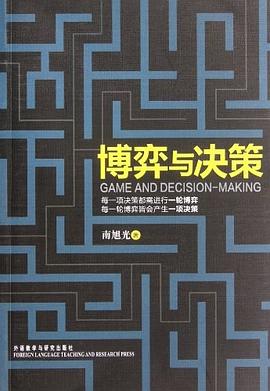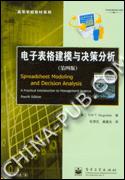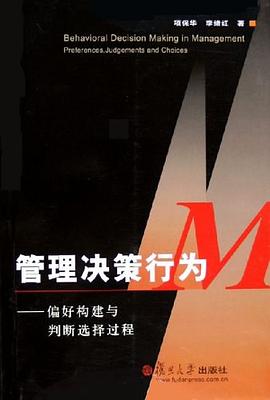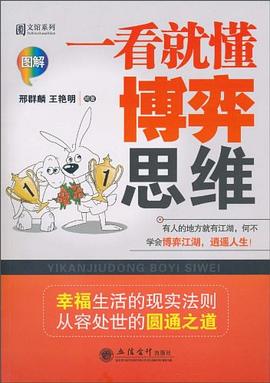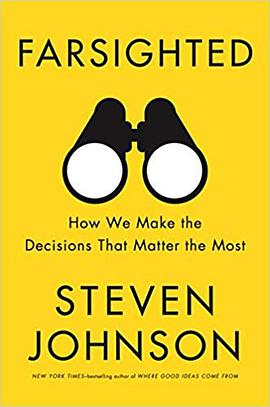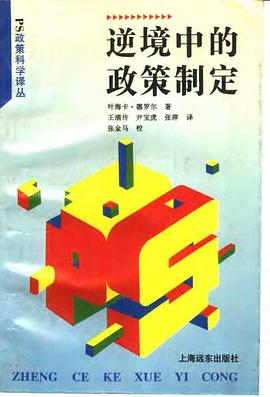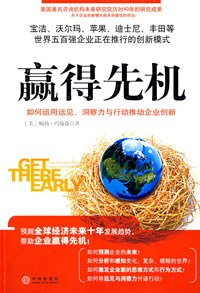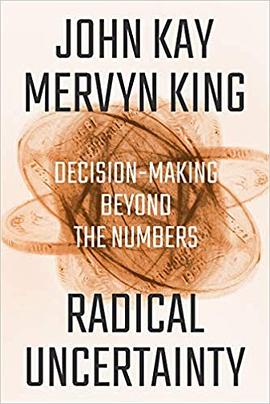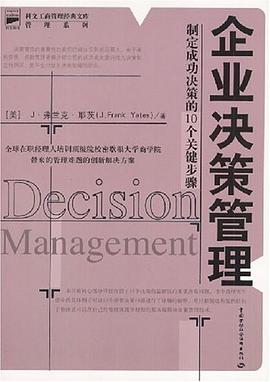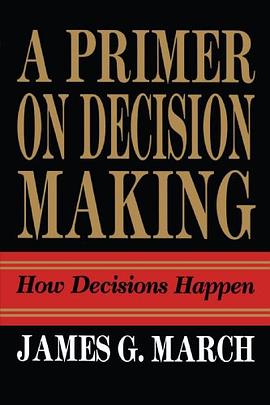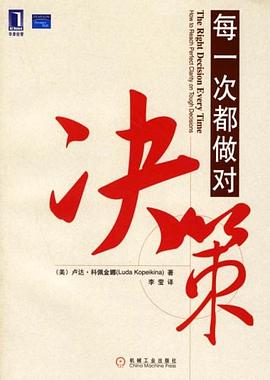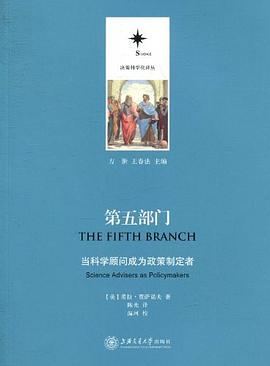

具体描述
本书为“决策科学化译丛”之一,主要批判了指导监管机构运用科学知识的两种普遍公认的范式——“民主论”模式和“技术统治论”模式,并通过研究美国环保局、美国食品药品监督局的相关案例(如致癌原风险评估指南的制定过程、甲醛的监管问题等)阐释并评价了美国社会作出关于科学和技术选择的部分决策过程,讨论了咨询委员会以外的其他机制,并就如何提高科学咨询的质量提出了建设性设想。
作者简介
Sheila Jasanoff is an American academic and significant contributor to the field of Science and Technology Studies. She is Pforzheimer Professor of Science and Technology Studies at the John F. Kennedy School of Government at Harvard University, where she directs the Program on Science, Technology, & Society. [1] Her research focuses on science and the state in contemporary democratic societies. Her work is relevant to science & technology studies, comparative politics, law and society, political and legal anthropology, and policy analysis. Jasanoff’s research has considerable empirical breadth, spanning the United States, the United Kingdom, Germany, the European Union, and India, as well as emerging global regimes in areas such as climate and biotechnology.
One line of Jasanoff’s work demonstrates how the political culture of different democratic societies influences how they assess evidence and expertise in policymaking. Her first book (with Brickman and Ilgen), Controlling Chemicals (1985), examines the regulation of toxic substances in the United States, Germany, and the United Kingdom.[2] The book showed how the routines of decision making in these countries reflected different conceptions of what counts as evidence and of how expertise should operate in a policy context. In Designs on Nature: Science and Democracy in Europe and the United States (2005), she has shown how different societies employ different modes of public reasoning when making decisions involving science and technology. [3] These differences, which in part reflect distinct "civic epistemologies," are deeply embedded in institutions and shape how policy issues are framed and processed by the bureaucratic machinery of modern states.
Jasanoff has also contributed to scholarship on the interaction of science and law. Science at the Bar (1995), for example, reached beyond the prevailing diagnoses of structural incompatibilities between science and law to explore how these socially-embedded institutions interact and, to a certain extent, mutually constitute each other. [4] The concept of regulatory science, conducted for the purposes of meeting legally-mandated standards, and the "boundary" drawing activities of science advisory committees are analyzed in The Fifth Branch (1990).[5] More recently, she has explored the "rise of the statistical victim" in toxic torts, as the law with its individualistic orientation has increasingly encountered, and sought ways to accommodate, the statistical vision of such fields as epidemiology.[6] In her work on science and law, as well as her research on science in the state, she takes an approach that links ideas from constitutional law, political theory, and science studies to consider the "constitutional" role of science in modern democratic states.[7]
Jasanoff has considered the politics of science not only in a comparative but also in a global context. Examples include her work on the transnational aspects of the Bhopal disaster (Learning from Disaster 1994); her research on the formation and politics of global scientific advisory bodies such as the Intergovernmental Panel on Climate Change; and her research on national and global environmental movements (e.g., Earthy Politics, 2004).
Jasanoff also has contributed to building Science and Technology Studies as a field. Prior to moving to Harvard, she was the founding chair of the Department of Science & Technology Studies at Cornell University. She is also the founder of the Science & Democracy Network, a group of scholars interested in the study of science and the state in democratic societies that has met annually since 2002. Her research has been recognized with many awards, including the Bernal Prize from the Society for Social Studies of Science.
She is married to Jay Jasanoff, and has two children, Maya Jasanoff, who is an associate professor in the Department of History at Harvard, Alan Jasanoff, is a neuroscientist at MIT.
目录信息
· · · · · · (收起)
读后感
这是本套丛书中选得最恰当的一本,原因并不在于我们能从美国的政策咨询体制中得到什么借鉴,但依然不妨碍我们看到科学咨询问题已经让科学和政治声誉联系在一起的事实。作为美派STS的代表,Jasanoff奶奶论述的中心并不在于宏大理论的创建,而是希望通过一个个鲜活的案例论证规制...
评分这是本套丛书中选得最恰当的一本,原因并不在于我们能从美国的政策咨询体制中得到什么借鉴,但依然不妨碍我们看到科学咨询问题已经让科学和政治声誉联系在一起的事实。作为美派STS的代表,Jasanoff奶奶论述的中心并不在于宏大理论的创建,而是希望通过一个个鲜活的案例论证规制...
评分这是本套丛书中选得最恰当的一本,原因并不在于我们能从美国的政策咨询体制中得到什么借鉴,但依然不妨碍我们看到科学咨询问题已经让科学和政治声誉联系在一起的事实。作为美派STS的代表,Jasanoff奶奶论述的中心并不在于宏大理论的创建,而是希望通过一个个鲜活的案例论证规制...
评分这是本套丛书中选得最恰当的一本,原因并不在于我们能从美国的政策咨询体制中得到什么借鉴,但依然不妨碍我们看到科学咨询问题已经让科学和政治声誉联系在一起的事实。作为美派STS的代表,Jasanoff奶奶论述的中心并不在于宏大理论的创建,而是希望通过一个个鲜活的案例论证规制...
评分这是本套丛书中选得最恰当的一本,原因并不在于我们能从美国的政策咨询体制中得到什么借鉴,但依然不妨碍我们看到科学咨询问题已经让科学和政治声誉联系在一起的事实。作为美派STS的代表,Jasanoff奶奶论述的中心并不在于宏大理论的创建,而是希望通过一个个鲜活的案例论证规制...
用户评价
这是本套丛书中选得最恰当的一本,原因并不在于我们能从美国的政策咨询体制中得到什么借鉴,但依然不妨碍我们看到科学咨询问题已经让科学和政治声誉联系在一起的事实。作为美派STS的代表,Jasanoff奶奶论述的中心并不在于宏大理论的创建,而是希望通过一个个鲜活的案例论证规制科学存在的可能。 说到这里,有几处翻译的问题稍微强调一下:regulation,按照中国人的习惯一般翻译成规制;Collins, H.所说的replication其实是可重复性(研究)的意思,翻译成重复会让读者有点不知所云。还有就是Price, D.说的spectrum是指(从真理到权力的)谱系;相应地,结论部分也应该翻译成“向权力讲真话”,而不是真理 等等。案例部分并没有详细筛查,欢迎其他老师同学继续努力。 再强调一点的是,Jasanoff对于建构主义的理解任然停留在狭义的阶段,当然可能由于
评分贾奶奶的语言翻译成这样已经不容易了。主要内容是在讨论监管机构(第四部门)与咨询机构(第五部门)在科学咨询中各自所扮演的角色,理论层面只是多处提及柯林斯实验者回归,更多贡献在于详实案例的分享,在“技术统治论”与“专家治国论”之间勾勒出理想的咨询与决策轮廓。
评分正好发生了什邡事件 第五部门要上啊; 看了此书发觉我们的政府很弱智 至少同样主题的学术文章没见过;看了一套丛书中的其他几本,这本确实是最好的一本。
评分这是本套丛书中选得最恰当的一本,原因并不在于我们能从美国的政策咨询体制中得到什么借鉴,但依然不妨碍我们看到科学咨询问题已经让科学和政治声誉联系在一起的事实。作为美派STS的代表,Jasanoff奶奶论述的中心并不在于宏大理论的创建,而是希望通过一个个鲜活的案例论证规制科学存在的可能。 说到这里,有几处翻译的问题稍微强调一下:regulation,按照中国人的习惯一般翻译成规制;Collins, H.所说的replication其实是可重复性(研究)的意思,翻译成重复会让读者有点不知所云。还有就是Price, D.说的spectrum是指(从真理到权力的)谱系;相应地,结论部分也应该翻译成“向权力讲真话”,而不是真理 等等。案例部分并没有详细筛查,欢迎其他老师同学继续努力。 再强调一点的是,Jasanoff对于建构主义的理解任然停留在狭义的阶段,当然可能由于
评分【除夕读物】核心处理美国规制机构(主要是EPA和FDA)如何平衡决策中“民主性”与“科学性”之间的张力——而WH事件则告诉我们,相比“民主性”与“科学性”,在我国或许还有更重要的一个维度,“政治性”。
相关图书
本站所有内容均为互联网搜索引擎提供的公开搜索信息,本站不存储任何数据与内容,任何内容与数据均与本站无关,如有需要请联系相关搜索引擎包括但不限于百度,google,bing,sogou 等
© 2026 onlinetoolsland.com All Rights Reserved. 本本书屋 版权所有


